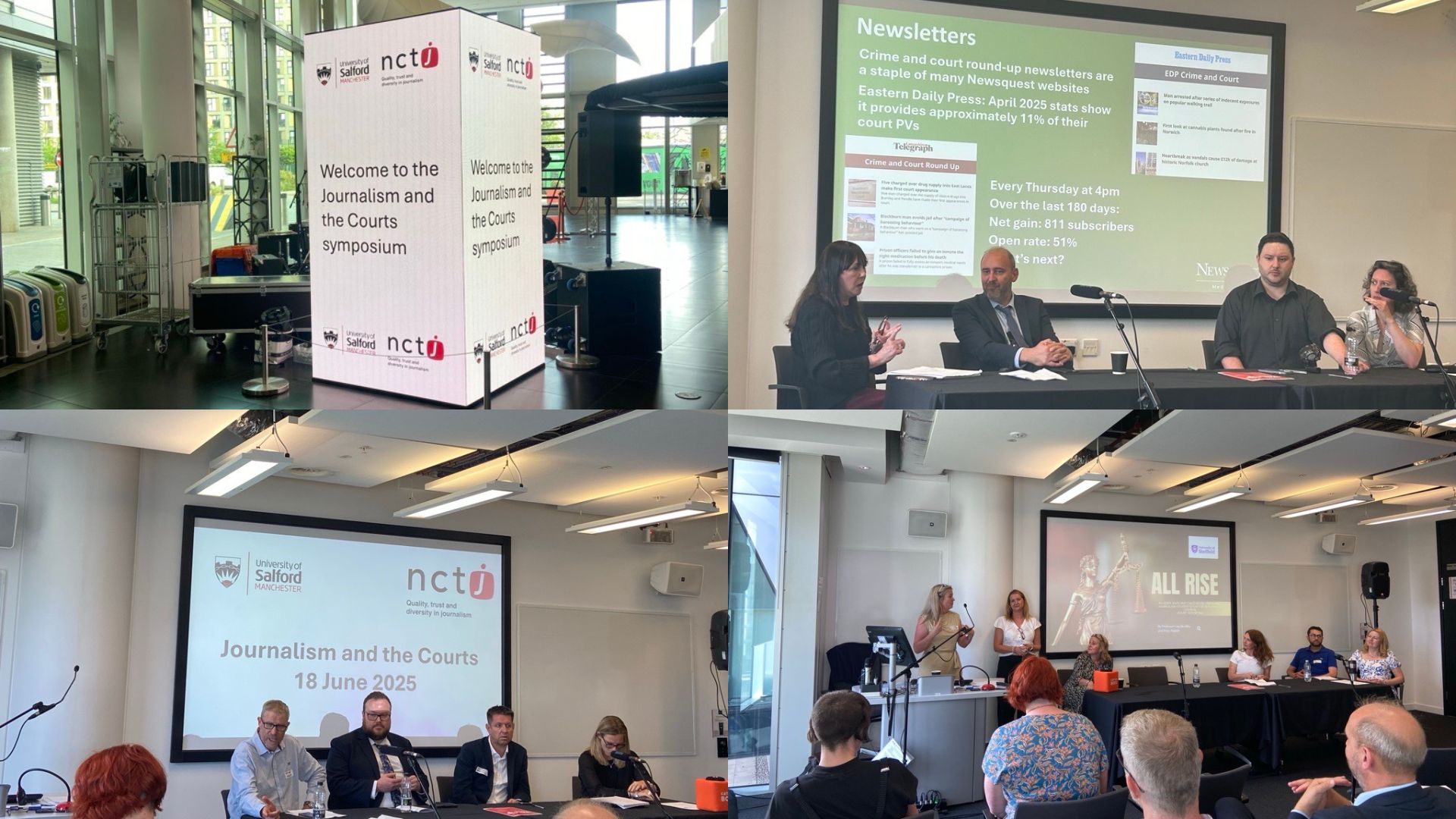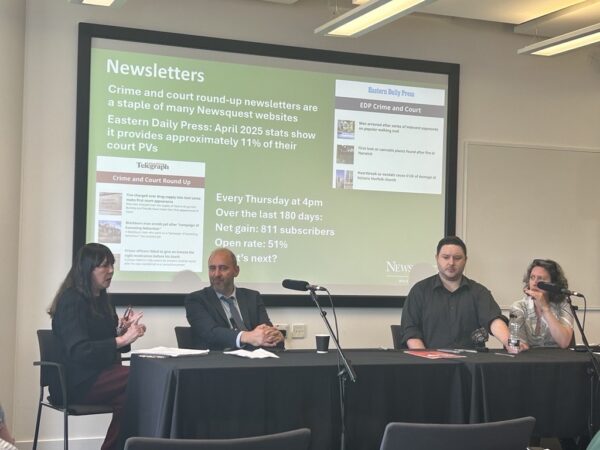
NCTJ to explore new ways of preparing journalists to report on family courts following court reporting symposium
The NCTJ will explore new ways to prepare journalists to cover family courts, following the Journalism and the Courts symposium hosted by the University of Salford in association with the NCTJ.
The event, held at MediaCityUK on 18 June, brought together journalists, educators, students, and academics to discuss the current and future state of court reporting, as well as the skills and training required to support open justice.
With journalists now able to access family courts, speakers highlighted the need for further education and guidance to ensure they are equipped to report on these sensitive cases.
Barriers identified included limited capacity in newsrooms, and concerns about safeguarding and judicial apprehension.
 In a session on regional journalism and crime, Richard Duggan, regional editor for the North West at Newsquest, said: “We need to be the eyes and ears of the public.”
In a session on regional journalism and crime, Richard Duggan, regional editor for the North West at Newsquest, said: “We need to be the eyes and ears of the public.”
The importance of court reporting to regional audiences was also highlighted, with Richard adding: “What’s really bringing people to us is court coverage.”
Maria Breslin, editor of the Liverpool Echo, said: “It is really reassuring for the whole of regional journalism that in this very difficult age of mis and disinformation, people do turn to us in times of need because they do trust us.”
The importance of shorthand was also discussed, with panellists highlighting that 100 words per minute shorthand remains vital for journalists covering court proceedings. Discussions also focused on the emotional impact of court reporting, with calls for greater support and training to help journalists covering distressing cases.
In a session on teaching court reporting, educators from NCTJ-accredited courses shared approaches to preparing students to report from court. Polly Rippon from the University of Sheffield presented their use of actor-led mock trials to help build students’ confidence before attending live court proceedings.
The importance of media law knowledge was also emphasised, to ensure students are aware of their rights to report and can challenge restrictions accordingly.
Joanne Forbes, chief executive of the NCTJ, said: “We were pleased to support this symposium with the University of Salford. These conversations are essential to ensuring journalism training meets the needs of the industry. With access to family courts opening up, we will look at how best to prepare journalists to cover these sensitive proceedings confidently and responsibly.”

